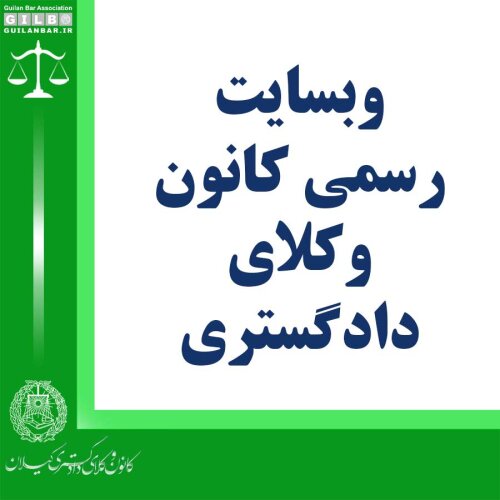Best DUI & DWI Lawyers in Rasht
Share your needs with us, get contacted by law firms.
Free. Takes 2 min.
List of the best lawyers in Rasht, Iran
About DUI & DWI Law in Rasht, Iran
Driving under the influence (DUI) or driving while intoxicated (DWI) refers to operating a vehicle after consuming alcohol or drugs beyond legally permitted thresholds. In Rasht, Iran, DUI and DWI offenses are governed by national Iranian law, which is highly strict due to religious and public safety considerations. The legal environment in Rasht means that even minor infractions related to alcohol or drug use by drivers are taken very seriously, with zero-tolerance policies often applied.
Why You May Need a Lawyer
Seeking legal assistance for DUI or DWI cases in Rasht is critical for many reasons. Individuals facing such charges may encounter complicated legal proceedings, risk potential jail time, heavy fines, or loss of driving privileges. Even unintentional mistakes, such as unintentionally being under the influence from prescription medications, can lead to serious accusations. A lawyer can provide guidance, represent you in court, protect your rights, negotiate for reduced penalties, and help navigate complex procedures unique to Iran’s legal system. In cases involving foreign nationals or expats, language barriers and unfamiliarity with local laws make professional legal help even more necessary.
Local Laws Overview
Rasht, as a part of Iran, enforces some of the strictest DUI and DWI regulations in the world. The following aspects are particularly relevant:
- Alcohol is prohibited for Muslims in Iran, and authorities may test drivers for any presence of alcohol in their system.
- Drug-impaired driving is also illegal, covering both illicit substances and certain strong prescription medications.
- Penalties can include significant fines, imprisonment, temporary or permanent driver’s license suspension, and even corporal punishment in severe cases.
- Police have authority to conduct random tests for alcohol and narcotics, and refusal to cooperate can result in additional penalties.
- Commercial drivers and repeat offenders are subject to even stricter enforcement and increased punishments.
Because DUI and DWI are considered criminal offenses with broader implications for employment and personal freedom, local customs and religious rules intensify legal risks.
Frequently Asked Questions
How is DUI or DWI defined in Rasht, Iran?
DUI and DWI are defined as operating any motor vehicle while impaired by alcohol or drugs, measured by physical testing or observed if there is proof of consumption.
Is there a legal blood alcohol concentration (BAC) limit for driving in Rasht?
There is essentially zero tolerance for alcohol in the blood of drivers, especially for Muslims. Any detectable amount can be considered a violation.
What are the typical penalties for a first-time DUI or DWI offense?
Typical penalties can include substantial fines, imprisonment, and suspension or revocation of your driver’s license. Severity depends on circumstances such as causing injury or repeat offenses.
Can you refuse a sobriety or drug test if stopped by police?
Refusing to submit to testing can result in immediate arrest and additional penalties, potentially harsher than if you had complied and failed the test.
Are both alcohol and drugs covered by DUI & DWI laws?
Yes. Laws cover both alcohol and a wide array of drugs, including some prescriptions known to impair driving. Officers may perform tests for both.
Is there any leniency for non-Muslims or foreign nationals arrested for DUI or DWI?
All individuals in Iran, regardless of religion or nationality, are subject to the same DUI and DWI laws. Non-Muslims may face similar legal actions and should seek legal counsel immediately.
Can a DUI conviction in Rasht affect your insurance or driver's license?
Yes. Convictions can lead to loss or suspension of driving privileges and may also impact vehicle insurance eligibility and premiums.
What should you do if you are accused of DUI or DWI in Rasht?
Remain calm, cooperate with the authorities, avoid making self-incriminating statements, and contact a qualified lawyer immediately for guidance.
Can DUI or DWI charges be challenged in court?
Yes. With legal representation, factors such as testing procedures, arrest validity, or mitigating circumstances can be brought before the judge.
Are there any alternatives to jail for DUI or DWI offenders?
In some situations, penalties can be negotiated or substituted with alternatives like rehabilitation programs or probation, particularly for first-time or minor offenses. However, this depends on the specifics of the case and judicial discretion.
Additional Resources
Individuals seeking guidance or support regarding DUI and DWI laws in Rasht, Iran, may find the following resources helpful:
- Iranian Judiciary Offices - For filing legal documents and finding public defenders.
- Local Police Stations - For clarifications regarding traffic safety regulations.
- Iranian Bar Association - For referrals to qualified defense lawyers specializing in criminal and traffic law.
- Legal Aid Centers - For those unable to afford private legal representation.
- Embassies or Consulates - For foreign nationals requiring consular assistance.
Next Steps
If you are facing DUI or DWI allegations or if you have questions about related laws in Rasht, Iran, it is important to act quickly and responsibly:
- Do not provide incriminating statements to authorities without first consulting a lawyer.
- Collect and preserve any relevant documents such as tickets, test results, or police reports.
- Contact a lawyer who is familiar with Iranian criminal and traffic law immediately for a case assessment.
- If you are a foreign national, notify your embassy or consulate for assistance and rights guidance.
- Attend all required court dates and comply with legal orders to avoid further penalties.
Remember that every situation is unique and seeking professional legal advice offers your best chance for a favorable outcome.
Lawzana helps you find the best lawyers and law firms in Rasht through a curated and pre-screened list of qualified legal professionals. Our platform offers rankings and detailed profiles of attorneys and law firms, allowing you to compare based on practice areas, including DUI & DWI, experience, and client feedback.
Each profile includes a description of the firm's areas of practice, client reviews, team members and partners, year of establishment, spoken languages, office locations, contact information, social media presence, and any published articles or resources. Most firms on our platform speak English and are experienced in both local and international legal matters.
Get a quote from top-rated law firms in Rasht, Iran — quickly, securely, and without unnecessary hassle.
Disclaimer:
The information provided on this page is for general informational purposes only and does not constitute legal advice. While we strive to ensure the accuracy and relevance of the content, legal information may change over time, and interpretations of the law can vary. You should always consult with a qualified legal professional for advice specific to your situation.
We disclaim all liability for actions taken or not taken based on the content of this page. If you believe any information is incorrect or outdated, please contact us, and we will review and update it where appropriate.









